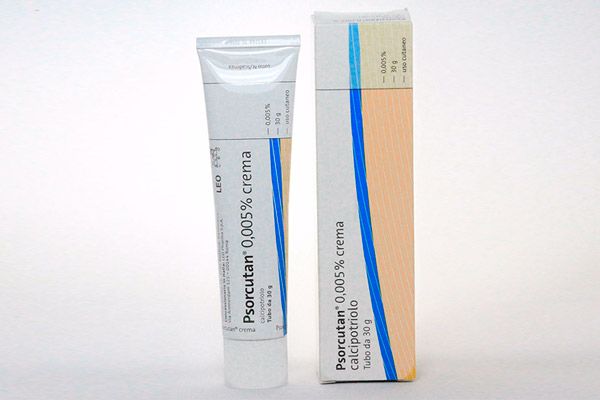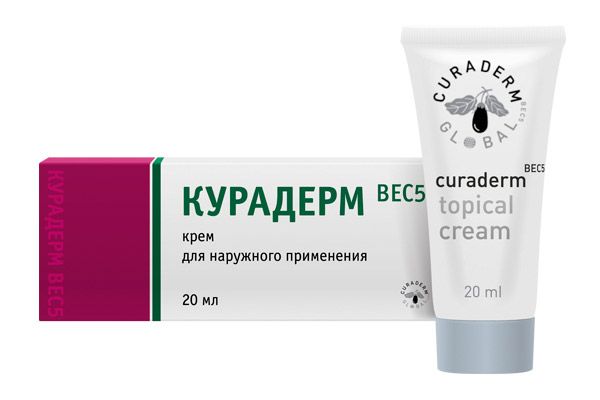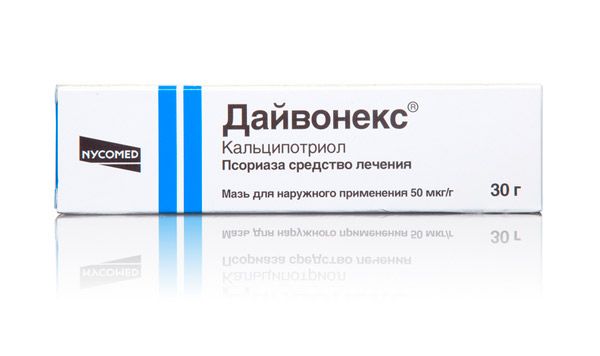Medical expert of the article
New publications
Preparations
Vitamin D for the treatment of psoriasis
Last reviewed: 23.04.2024

All iLive content is medically reviewed or fact checked to ensure as much factual accuracy as possible.
We have strict sourcing guidelines and only link to reputable media sites, academic research institutions and, whenever possible, medically peer reviewed studies. Note that the numbers in parentheses ([1], [2], etc.) are clickable links to these studies.
If you feel that any of our content is inaccurate, out-of-date, or otherwise questionable, please select it and press Ctrl + Enter.
Vitamin D in psoriasis helps to reduce the rate of proliferation of skin cells, thereby slowing down the pathological changes in the epidermis that are characteristic of this disease.
Pharmacodynamics
Anti-psoriasis preparations with vitamin D are able to freely pass through cell membranes and bind to fibroblast and keratinocyte conductors, and in addition to separate forms of leukocytes.
Psorkutan, depending on the dose, suppresses the process of keratinocyte multiplication and increases the rate of their morphological differentiation. Has a weak effect on calcium metabolism in the body (this process is 100 times weaker than similar parameters with the participation of vitamin D3).
The substance calcipotriol effectively suppresses the activity of T-lymphocytes, which is caused by exposure to IL-1. It also controls the immune processes that occur in the skin. After application of the cream, ointment or solution to the skin, the development of the therapeutic effect occurs for 14 days.
Pharmacokinetics
As a result of application, a maximum of 1% of calcipotriol is absorbed onto the skin. Some part of the substance undergoes biotransformation in the liver, during which low-active decay products are formed. The resorbed substance is released through the intestine and kidneys.
Dosing and administration
Medicines have different forms of release - for example, ointments, creams, and also lotions. The latter should be applied to the nail plates, as well as the skin in the area of the hair (but in this case this method of treatment becomes less effective - the maximum effect on the skin is interfered with by the hair).
The recommended weekly dosage of drugs with vitamin D is - for adults 100 g, children 12+ years - 75 g, and children 6-12 years old - 50 g. Data on the use of ointments for the treatment of children under the age of 6 does not exist . The result from the application of the ointment appears after 8-12 weeks of therapy. This treatment method can be combined with other local procedures (for example, physiotherapy).
The use of Psorutkutan begins with applying this medication to a small number of plaques for 1-2 days - to track the reaction of the skin to the drug. If the allergy is not manifested, the treatment is carried out according to the scheme - the procedure of applying the ointment twice a day.

Kuratoderm is used in case of moderate or mild severity of psoriasis - it should be applied daily before bedtime for a maximum of 8 weeks. It should be noted that the medicine is allowed to lubricate not more than 20% of the skin surface.

Silix is also used for mild or moderate psoriasis. Ointment is applied to the affected areas of clean and dry skin twice a day (in the morning and in the evenings). A day can cover a maximum of 35% of the surface of the skin. On average, the treatment course lasts about 6 weeks, but if necessary, longer therapy can be prescribed. In addition, the drug is sometimes used with maintenance treatment.
Daivoniex it is authorized to put a maximum on 30% of a surface of an epidermis as at excess of this parameter the surface of absorption of ointment increases, therefore unpleasant complications can develop. Apply this medicine twice a day.

In psoriasis, you can also take the vitamin D group orally - the daily dosage is 1.5 mg (three times a day for 0.5 mg). The duration of the course is about 1-3 months. If vitamins are used in maintenance treatment, then they need to drink for 1 year - monthly courses with intervals of 1 month between them.
Ointments with vitamin D for psoriasis
Anti-psoriasis ointments containing vitamin D are non-hormonal drugs with anti-inflammatory properties. Since on the skin areas affected by psoriasis, a strong inflammatory process develops, the skin cells begin to divide in an accelerated rhythm, after which their scales accumulate on its surface.
Scientific tests helped to establish that, due to the application of ointments with vitamin D (category D3) to the skin, the cell division in the epidermis slows down. As a result, the intensity of development of inflammatory processes decreases.
Use of the vitamin D for psoriasis during pregnancy
During pregnancy, antipsoriatic drugs with vitamin D are contraindicated.
Contraindications
When using Duivonex ointment, you should give up keratolytic sessions, as well as phototherapy, in which salicylic acid is used. Also, this medicine should not be given to children under 6 years of age.
Other antipsoriatic ointments are contraindicated in cases of hypersensitivity to the components of the drug, as well as to children under 12 years of age.
Side effects of the vitamin D for psoriasis
Since drugs containing vitamin D are capable of provoking irritation in areas of the skin with increased sensitivity, it is not recommended to apply them to skin folds - in the groin, underarms, and in addition under the mammary glands. Another place sensitive to these ointments is the face - for example, irritation of this area of the skin in some cases causes the ointment of Psorkutan.
Also among the side effects of antipsoriatic drugs are such reactions as the development of hypercalciuria or hypercalcemia. In general, this effect develops due to prolonged use of drugs or after an overdose.
Overdose
As a result of an overdose, the concentration of calcium in the blood increases. This process entails the development of pathological processes, and also causes such symptomatic manifestations:
- deterioration of appetite;
- the appearance of vomiting with nausea;
- in some cases, constipation begins;
- there is fatigue, weakness and lethargy.
Interactions with other drugs
Psorkutan should not be combined with local medicines containing salicylic acid.
When the combination of Silix with diuretics from the group of thiazides increases the dosage of vitamin D, which increases the likelihood of hyperkalemia.
 [29]
[29]
Reviews
Vitamin D is necessary in psoriasis, because it helps to properly heal the skin, and also to accelerate the regeneration processes. Feedback suggests that drugs containing these substances have a positive effect on the treatment of psoriasis, slowing the pathological changes in the skin.
Attention!
To simplify the perception of information, this instruction for use of the drug "Vitamin D for the treatment of psoriasis" translated and presented in a special form on the basis of the official instructions for medical use of the drug. Before use read the annotation that came directly to medicines.
Description provided for informational purposes and is not a guide to self-healing. The need for this drug, the purpose of the treatment regimen, methods and dose of the drug is determined solely by the attending physician. Self-medication is dangerous for your health.

